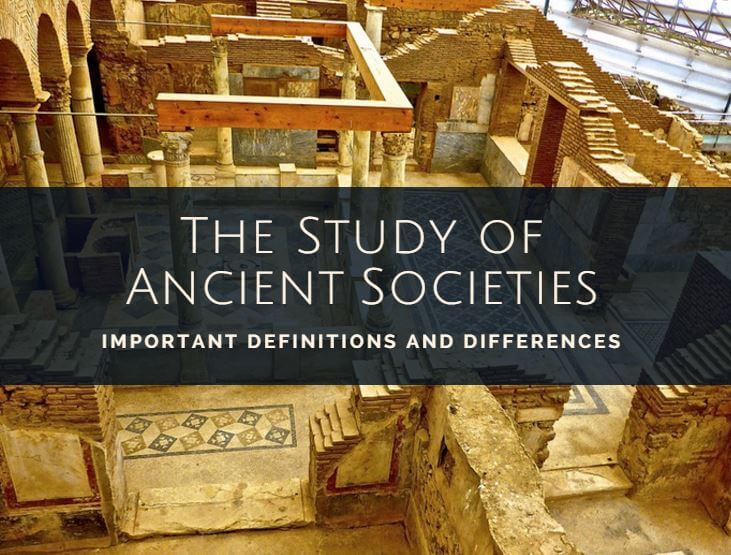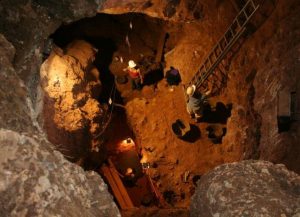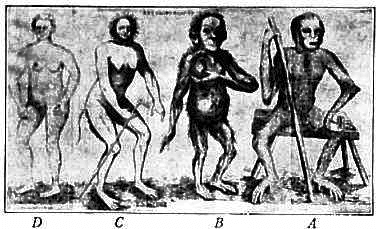In this article, we will define several important concepts and make the relevant differentiations so that we can understand the study of ancient societies in a broader sense.

The Study of Ancient Societies
Contents
What is the study of Ancient Societies?
Archaeology is the science which studies ancient societies based on their material remains. Through the analysis of objects and those works constructed by ancient peoples, this science can arrive at conclusions about their culture and their ways of life. There are several branches of Archaeology as well as many tools relevant to this science.
Archaeology
The people who dedicate themselves to studying the past in the framework of this science are known as archaeologists. Their work consists of reconstructing the life of ancient populations based on the material manifestations which they have left. Thanks to diverse techniques developed over time, archaeologist can “read” objects and know through them diverse aspects of human behavior in the past. The methodology of study helps them to situate the various discovered objects in a determined space and time, in order to be able to analyze them within a particular context.

Although traditional Archaeology centers on Prehistory and on the Ancient Era, in recent decades the archaeological technique has been applied to more recent periods, like the Middle Ages and the Modern Age. Another branch of Archaeology also exists, which has as its object the study of nearer times; it is known as Industrial Archaeology and its analysis is centered on the inspection of urban waste.
The most important branches of Archaeology are:
- Ethnoarchaeology (dedicated to studying a living society on the basis of material artistic works)
- Contextual Archaeology (focuses its study on the associations which can exist between diverse objects and the way in which each one influenced life in the society)
- Cognitive Archaeology (studies the ways of thinking and the system of symbols of peoples of the past based on the material remains which are found)
- Experimental Archaeology (bases its study on the reconstruction of materials based on the means used in antiquity, to be able to reach an understanding of their operation and the limitations which they presented)
- Landscape Archaeology (attempts to reach an understanding of what the environment was like in which the people being studied lived, and the way in which they interacted with it)
- Archaeometry (through physicochemical techniques which are applied to the object of study, deep analyses can be established regarding the construction of the same, the characteristics of its materials and the way in which they were manipulated)
- Holistic Archaeology (analyzes the abstract and intellectual aspects of a society to reach understanding it as a whole. Through the ideas on politics, art, ecology, etc. which distinguished this human group we can comprehend as a whole the way in which they lived and understand the priorities of each group.)
There are various terms related to Archaeology, some of them are:
- Archaeological prospecting: consists of the exploration of an area in search of material vestiges of a society.
- Archaeological site: they are those places where remains of a settlement have been found and the perimeter is demarcated for its study. The deposits tend to be found hidden underground, above all if the culture which is studied is very old.
- Archaeological excavation: it is an activity which should be done with much delicacy given that it can only be done one time in each geographic space. Each excavation of this kind should be authorized and carried out by a competent institution. Those in charge of carrying it out tend to be specialized people, capable of identifying valuable objects from those which are not, and of establishing connections between the remains and the culture which has left them.
- Laboratory work: consists of the analysis of the obtained remains. Once the archaeological excavation has successfully been carried out, the objects are moved to a building where, making use of a series of technological tools, scientists can analyze and make conclusions about their origin.
Difference between Archaeology and Anthropology

- Archaeology: the science which studies, describes and interprets ancient civilizations.
- Anthropology: the science which studies the physical aspects and the social and cultural manifestations of human communities.
What is the difference between Archaeology and Anthropology?
While Archaeology is the study of ancient peoples of the world, Anthropology is the study of man. Archaeology is dedicated simply to the remains, to examining and detecting dates in order to thus deduct chronologies, ways of life and social organizations of the past. Anthropology can be social, studying the culture of man; or it can be physical, studying man in the corporal dimension and that related to it.
It can also be linguistic. All these forms of Anthropology take in society, the origin and end of man, his culture and all the dimensions of the human being.
